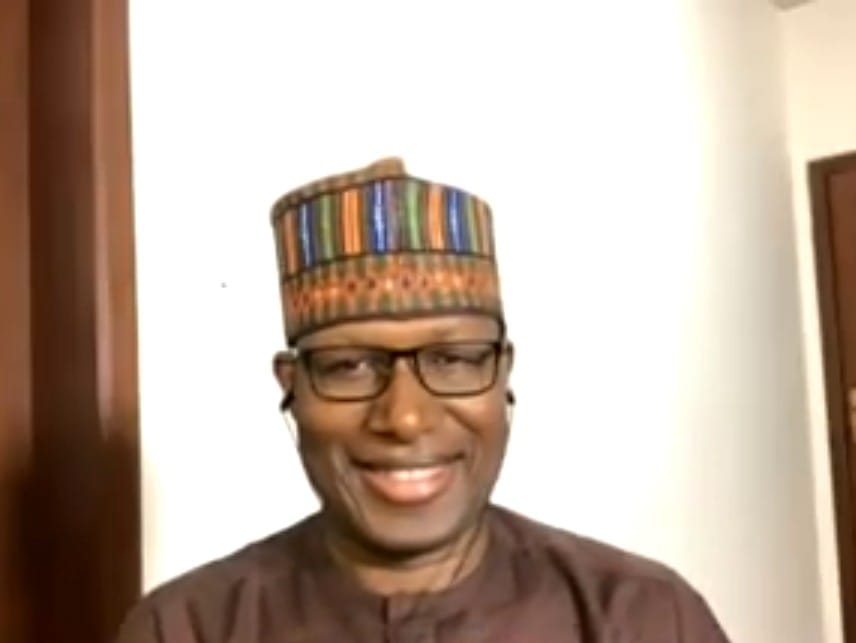Chairman of the Association of Licensed Telecoms Operators of Nigeria (ALTON), Mr Gbenga Adebayo, has called on the Federal Government to totally abolish the 5 percent Excise Tax on telecommunication services not just a temporary suspension.
The ALTON chairman said it amounts to double taxation which increases the cost of services that creates more burdens for the consumers.
Join our WhatsApp ChannelPresident Bola Tinubu on Thursday signed four Executive Orders one of which is the suspension of the 5 per cent Excise Tax on telecommunication services. Others are the suspension of the newly introduced Green Tax by way of Excise Tax on Single-Use Plastics, including plastic containers and bottles; and excise duty on locally produced goods, Import Tax Adjustment levy on certain vehicles. The president also signed orders deferring the commencement date of implementation of the Finance Act from May 23, 2023, to September 1, 2023; and that of the Customs Excise Tariff Amendment from March 27, 2023, to August 1, 2023.
READ ALSO: BREAKING: Tinubu Signs Executive Orders, Suspends 5% Excise Tax on Telecoms, Others
Reacting to the announcement of the suspension, Mr Adebayo, who appeared on Channels Television Sunrise Daily programme on Friday morning monitored by Prime Business Africa, commended the president for the action, adding that it would have been a burden on subscribers.
He however, stated that during the immediate-past administration the former Minister of Communication and Digital Economy, had made a request to former president Buhari asking for an exemption of the telecoms sector from the tax and it was approved, but they became surprised when the new administration came in and they started hearing about the tax again.
He explained that the burden of collection of the 5 per cent excise tax will be on the telecoms operators but the weight of the tax itself will be on the subscribers.
“What the Executive Order that the president signed yesterday has done is to uphold the waiver that was granted to the sector. We had said earlier, among other things that the burden of collection of the 5 per cent Excise Tax will be on the telecoms operators but the weight of the tax itself will be on the subscribers. We had said to the government that we currently apply the 7.5 per cent VAT on every service offered. If the 5 per cent tax is introduced, it will eventually move to 12.5 percent and that will have an implication on the cost of service delivery to the end users,” Adebayo said.
“As an industry, we welcome it but really and truly, it would have been a burden on the subscribers and we also think that it would have increased the cost of services, and would deny access to many people. In this regard, we think that the suspension is good, but we feel that total abolition of this tax will be in the best interest of the industry and the subscribers.”
The ALTON chairman further lamented that telecoms operators face over 39 taxes across the federation, adding that “some of them are captured in the statute and a number of them are not captured in any statute, while quite a number of them are repeated at federal and state levels and it increases costs of providing services to the end-users. A number of them are also passed to the subscribers.”
He stressed that the issue of multiple taxes is part of the component of the high cost of service provision and that government should consider abolishing it completely, adding that it is not sustainable for the industry stakeholders.
“We do welcome the development but we think that for the greater good, the government should consider total abolition of that 5 percent excise tax.”
“We think it is not sustainable, and contrary to the will of progress, and as Mr President has said that he will look at all the issues of multiple taxations, we think that the telecoms sector, where we have over 39 of them, should be one of those sectors to be addressed,” the ALTON chairman pleaded.
He further lamented that aside from taxes that are defined which they comply with, especially at the federal level, there are many arbitrary ones they are subjected to both at state and local government levels.
He urged the Federal Government to look at the telecoms sector as a national economic support infrastructure and provide them with what he called “critical national infrastructure Protection” and shield them from the unacceptable behaviours of tax collectors at state and local government levels which doesn’t support business success.
Also, speaking on the programme, Abiola Sanni, a Senior Advocate of Nigeria (SAN), and a Professor of Commercial Law, with a specialty in Tax Law at the University of Lagos, said what the president has done with the removal of the taxes is “damage control to arrest a very bad situation in the country.”
He said that those who drafted the Finance Act may not have envisaged what is happening today. “So, now that there is deregulation of fuel prices, unification of foreign exchange rate, and we can see the impact on the economy of a common man,” Sanni noted.
“This is a demonstration of political will in the highest level, in view, to arrest the drift. I thank the president for that.”
He, however, said the announcement is just a postponement of the commencement date of implementation of the Finance Act that is already problematic with the original effective date of enforcement.
He expressed support for the complete abolition of the excise tax on telecommunication services because according to him, it amounts to double taxation.
Sanni said that while the government is exploring ways of increasing revenue generation, it must put the welfare of the people into consideration, adding that “if we tax rightly, we would get more money on a sustainable basis.”
He said the government needs to carry out comprehensive reforms around the tax system to curb the incidents of multiple taxation.
Dwelling on multiple taxations, the Senior Advocate of Nigeria cited a provision in the new Finance Act that imposes a levy on importation from outside Africa to finance the financial commitments of some international organisations by Nigeria, adding that it is not a sustainable way to go.
On ways of handling the issue of double taxation as part of tax reforms, Prof Sanni said that all the tiers of government should harmonise the levies in terms of the purpose of the collections and what each of them should be responsible for.
He also stressed the need for government to adopt genuine ways of blocking revenue leakages to increase revenue generation.
Victor Ezeja is a passionate journalist with seven years of experience writing on economy, politics and energy. He holds a Master's degree in Mass Communication.



















Follow Us